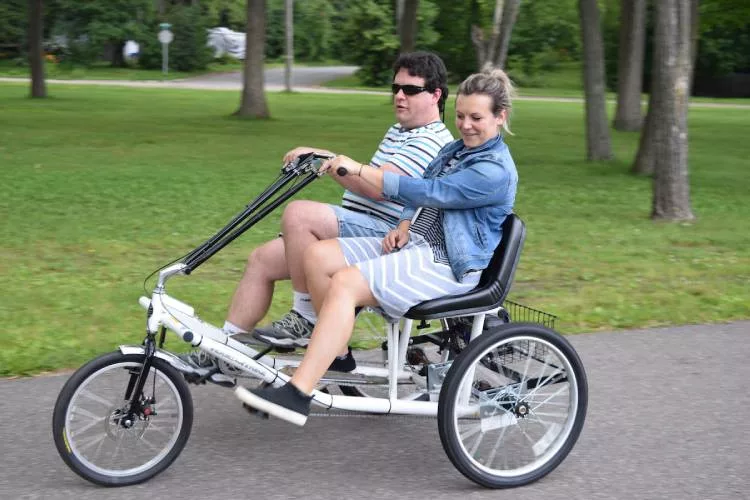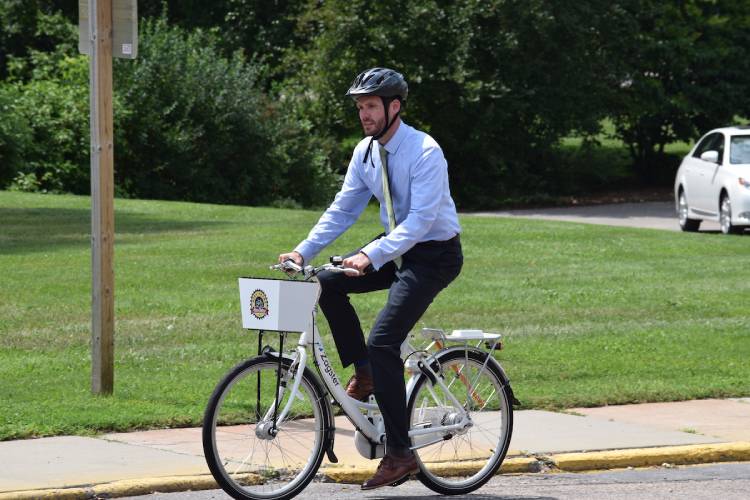But in between is the surprisingly gnarly slope of the bridge.
At my insistence, Hascall and I share the piloting duties, but when I lift my hand from the steering gear, he reminds me, “You’re letting a blind man steer.”
Bikes to build healthier, more inclusive communities
Bike share is supported by the Wood County Health Department, as an effort to combat chronic disease. In 2018, the program received a $50,000 grant from the Wisconsin Partnership Program at the University of Wisconsin–Madison School of Medicine and Public Health.
“We are seeing an increase in the rate of obesity every year, and that’s a major contributor to heart disease, the number two cause of death in Wood County,” explains Sarah Salewski, health promotion and communication specialist. “When you think about things that can prevent heart disease, eating well and getting physical activity come immediately to mind.”
Our three-wheeler, together with two tandems which also can allow visually impaired people to ride, is part of the effort to involve the entire community in the outdoor, health-promoting activity of biking. “We want to make sure it is equitable, and we are working to decrease barriers,” says Salewski.
Biking can also combat isolation and increase community connections, Salewski adds. “When ride a bike, you are more likely to meet people you know. You notice things more on a bike, and are more likely to visit businesses and local destinations.”
The bike share allows four levels of involvement, from a $20 annual membership to a basic, $1/hour rental.
Hascall, 47, who is studying non-profit communication for a master’s degree at UW–Stevens Point, has been working with bike share in Wisconsin Rapids since it began as the volunteer-run “River Riders” system in 2012. His interests range from political science to emergency communications.
“I like to be outside,” Hascall says, “and if you believe in something, you have to help make it happen.”
In return for free rentals, he visits farmers markets and bike share locations to talk about the program.
This year, the program is operated by Zagster, a business that focuses on “micromobility,” via a variety of wheeled vehicles.
Partnership supported planning and implementation
The Wisconsin Partnership Program’s grant funded planning and implementation, including community workshops, focus groups and a survey. The grant program recognizes that the health of a community depends on a strong foundation that is built upon things such as access to transportation and an environment that promotes well-being.
“By expanding its bike share program in an equitable way that addressed its community’s specific needs,” says Eileen Smith, Partnership director, “this project has been successful in creating a more accessible program, which contributes to positive health outcomes for everyone.”


